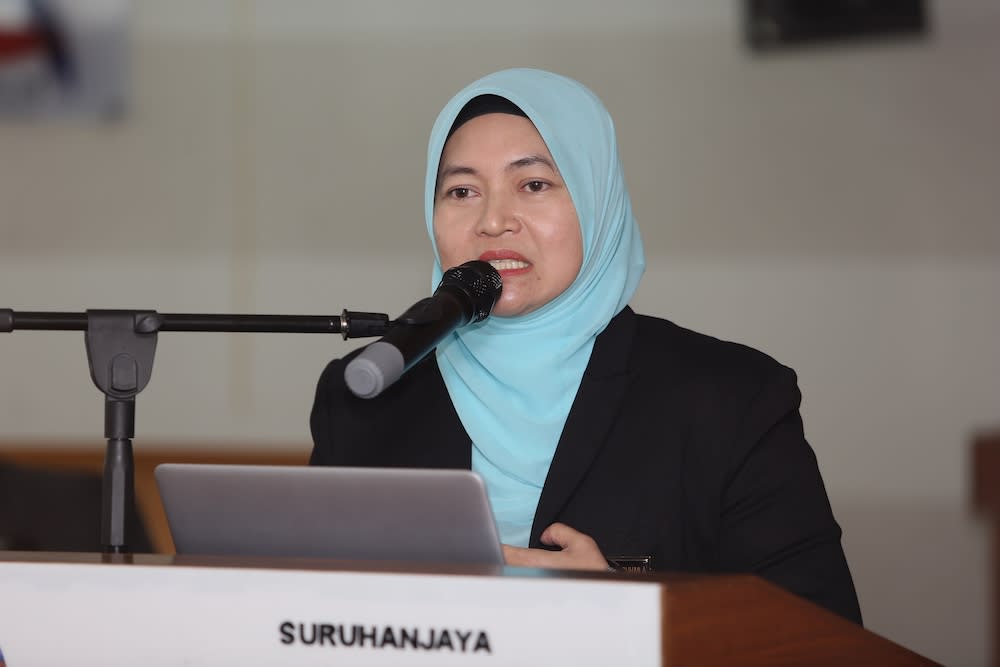Greater ties between Suhakam, Islamic enforcers led to better human rights insight, rep says

KUALA LUMPUR, Sept 12 — Increased cooperation between the Human Rights Commission of Malaysia (Suhakam) and state Islamic religious departments over the past year has led to a wider understanding of human rights, said commissioner Prof Nik Salida Suhaila Nik Saleh.
She said this has also led to Suhakam contributing to the content for Friday sermons at mosques, which is provided by the respective state governments.
“When we engaged with the departments, we discovered that we can prepare our ideas and thoughts for them, which can then be used in the sermons to discuss about human rights issues,” Nik Salida said during Suhakam's 20th anniversary forum at Istana Hotel.
Such settings are usually ideal to impart the importance of human rights, as she said Friday prayers are obligatory for Muslim males.
“Usually in preparing the sermon, the human rights theme is very much related to that particular month. For example every September we have Human Rights Day in Malaysia, so the sermon is more about creating awareness and educating people on how human rights work, and how to enjoy as well as defend them.
“In other months, we focus on issues such as remembering senior citizens, environmental care, discrimination against women and children, which are then included in the sermon's text,” Nik Salida said.
Suhakam's contribution to Friday sermons originated from a proposal by its former chairman Tan Sri Razali Ismail, who initially suggested sometime last year to unify the Friday sermon texts into one for use by all states.
“I explained to him it is up to the states, and not the federal government, to determine what is to be used for the sermons. Similarly we do not force ourselves on the departments, so if they do not wish to use our texts for whatever reason then we cannot force them.
“Sometimes we have different topics from state to state for the sermons. For example, Penang may speak of the importance of integrity in protecting human rights, while Kuala Lumpur may focus on children,” she said, adding that at present, the Federal Territories, Penang, and Negri Sembilan utilise Suhakam's texts.
The commissioner, who is also a senior lecturer at the Islamic Science University of Malaysia's Shariah and Law Faculty, said when first approached, the religious departments reacted cautiously.
“I believe before this we did not have good engagement with them, so once we have good understanding and are on good terms with them, they began to further understand the concept of human rights.
“We do not see eye-to-eye on everything, since Suhakam is under federal jurisdiction and the Constitution while the departments are state-based and follow Islamic principles, but at least we can agree on 80 per cent of things when before there was no agreement whatsoever,” Nik Salida said.
One example is the issue of lesbians, gays, bisexuals and transgenders (LGBT) where she said the departments were at first under the misconception that Suhakam sought to promote the lifestyle, and even agreed with the concept of same-sex marriage.
“We did our research and when meeting them, we said Suhakam can only protect the LGBT community in five major areas; the right to education, the right to employment, the right to housing, the right to dignity, and the right to healthcare.
“This came as a surprise to them, and they informed us that religious departments also focus on these areas as well. So the fact that Malaysia is a majority-Muslim country means that it is necessary to co-operate with the departments, otherwise it becomes difficult to impart the importance of human rights to our society at large,” Nik Salida said.
In fairness, she said the trend of Friday sermons in touching upon human rights has been going on for over a decade or so.
“The sermons have elements of human rights, but it was usually unnamed nor did it use human rights language.
“When you use words like 'equality', 'discrimination', or protection of women', it becomes much stronger in disseminating the idea of how serious human rights are,” Nik Salida said.
Related Articles Constitution does not specify Islam as exclusively Sunni and Shafie, Suhakam rep says Suhakam wants Putrajaya to unmask selectors of its commissioners Minister: Amendments to Suhakam Act will give commission more independence, authority



